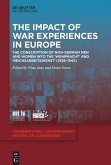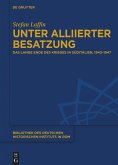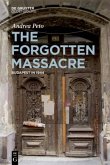Detention camps exceed the juridical concept of punishment and crime. This book comprises two parts: 1. a collected volume that discusses camps not as something of the past, but as a paradigmatic political space in which ordinary law is completely suspended, and 2. an Italian-English parallel text of the war diary of an Italian prisoner during his confinement at the Stalag X-B internment camp near Sandbostel from 1943-1945.
1. The Human Condition of Exception: Collected Essays
Edited by Aisling Reid and Valentina Surace
Written in Italian and English, the essays collected in this volume explore the issue of camps and suffering from various perspectives, including philosophical inquiry, literary analysis, historical description and legal assessment.
As Agamben suggests, the camp embodies the state of exception. A dehumanising camp life will therefore emerge every time such a structure is created. What happens in camps exceeds the juridical concept of punishment, as well as that of crime. Prisoners are faced with a 'useless' pain (Levinas) as it is not the expiation of a fault. Prisoners attempt to describe their extreme suffering through their diaries. Their experience, however, cannot be entirely communicated. Even their screams, which express humanity at the extreme limit of its un-power, are silenced. Given the recent popularity of right-wing politics, as well as the centenary of Mussolini's march on Rome, such research is more urgent than ever. The book will appeal to readers with an interest in philosophy as well as Irish history scholars studying internment during Partition and The Troubles in Northern Ireland.
2. Aldo Quarisa's Diary: An Italian-English Edition
Edited by Aisling Reid and Valentina Surace. Transcribed and with a preface by Galileo Sartor. Translation of the diary by Aisling Reid (Italian-English).
In 1943, Aldo Quarisa worked at a military school in Florence, where he taught literature. In October of that year, one month after Italy had surrendered to the Allied forces, the Italians declared war on the Germans.
In Florence, the German occupiers responded quickly, by arresting and deporting people with military connections to numerous concentration camps in Austria. Quite suddenly, Aldo was detained and deported through a network of camps, including Benjaminovo and the Stalag X-B internment camp, near the German village of Sandbostel.
For two years, he found himself imprisoned alongside other Italians, including the celebrated journalist Giovannino Guareschi, who secretly kept a diary that was later published as his Diario Clandestino 1943-1945 in 1946. Much like Guareschi, Aldo also kept a diary and excerpts are published here in both Italian and English for the first time. The diary describes in unprecedented detail the monotony of camp life, the cruelty of the guards and the prisoners' struggle to survive.
The text is an important document that preserves the memory and voices of all those who suffered during the war and will inevitably be of interest to readers with an interest in World War II.
1. The Human Condition of Exception: Collected Essays
Edited by Aisling Reid and Valentina Surace
Written in Italian and English, the essays collected in this volume explore the issue of camps and suffering from various perspectives, including philosophical inquiry, literary analysis, historical description and legal assessment.
As Agamben suggests, the camp embodies the state of exception. A dehumanising camp life will therefore emerge every time such a structure is created. What happens in camps exceeds the juridical concept of punishment, as well as that of crime. Prisoners are faced with a 'useless' pain (Levinas) as it is not the expiation of a fault. Prisoners attempt to describe their extreme suffering through their diaries. Their experience, however, cannot be entirely communicated. Even their screams, which express humanity at the extreme limit of its un-power, are silenced. Given the recent popularity of right-wing politics, as well as the centenary of Mussolini's march on Rome, such research is more urgent than ever. The book will appeal to readers with an interest in philosophy as well as Irish history scholars studying internment during Partition and The Troubles in Northern Ireland.
2. Aldo Quarisa's Diary: An Italian-English Edition
Edited by Aisling Reid and Valentina Surace. Transcribed and with a preface by Galileo Sartor. Translation of the diary by Aisling Reid (Italian-English).
In 1943, Aldo Quarisa worked at a military school in Florence, where he taught literature. In October of that year, one month after Italy had surrendered to the Allied forces, the Italians declared war on the Germans.
In Florence, the German occupiers responded quickly, by arresting and deporting people with military connections to numerous concentration camps in Austria. Quite suddenly, Aldo was detained and deported through a network of camps, including Benjaminovo and the Stalag X-B internment camp, near the German village of Sandbostel.
For two years, he found himself imprisoned alongside other Italians, including the celebrated journalist Giovannino Guareschi, who secretly kept a diary that was later published as his Diario Clandestino 1943-1945 in 1946. Much like Guareschi, Aldo also kept a diary and excerpts are published here in both Italian and English for the first time. The diary describes in unprecedented detail the monotony of camp life, the cruelty of the guards and the prisoners' struggle to survive.
The text is an important document that preserves the memory and voices of all those who suffered during the war and will inevitably be of interest to readers with an interest in World War II.








